A quieter week for HE policy, however, there’s news on the KEF and lots of other relevant content.
STEM for Britain
As a member of the Parliamentary and Scientific Committee BU’s early career researchers and PhD and post-doc researchers all have the opportunity for exposure of their work through the annual poster competition. Posters are being accepted for the following areas:
- Biological and Biomedical Sciences
- Chemistry
- Engineering
- Mathematical Sciences
- Physics
Prizes will be awarded for the posters presented in each discipline which best communicate high level science, engineering or mathematics to a lay audience.
Please share this information with ECR, PhD and PDR colleagues and those who work directly with them. This is a rare opportunity to showcase work within parliament at this level. All the shortlisted posters will be shared during a parliamentary reception in March 2020 and there will be the opportunity to talk about the research directly with policy makers.
The poster competition is open now please contact Lisa Andrews, RDS Research Facilitator, for more details and to enter.
www.stemforbritain.org.uk
Mental Health
The House of Commons library has a briefing paper setting out data on the prevalence of mental health conditions in higher education students in England and outlines the action higher education providers, the government and the Office for Students are taking to help students with mental health issues. It also flags up how students can get support.
From the briefing:
- Student mental health has been the subject of a number of reports as students are increasingly declaring mental conditions and reporting issues with stress and poor mental wellbeing. It has been suggested that student mental health is in ‘crisis’.
- The proportion of students who disclosed a mental health condition to their university has increased rapidly in recent years.
- Surveys of students have found much higher rates of mental ill health than those disclosed to universities. A recent survey found that 21.5% had a current mental health diagnosis and 33.9% had experienced a serious psychological issue for which they felt they needed professional help. Survey responses are confidential and are likely to give a better idea of the full extent of mental ill health.
- Many factors have been suggested as contributing to the rise in cases of mental ill health among higher education students – work pressures, moving away from home, financial worries, or more generally higher education institutions are said to be feeling the impact of the rise in metal health conditions among the 16-25 age population.
- The effect of mental health issues on students can be serious and can lead to consequences such as: academic failure, dropping out of education, poorer career prospects and in the worst cases suicide.
- Concern has been expressed about the availability of support for students with mental health conditions and the response of universities and higher education institutions.
- In 2017 Universities UK, published Stepchange Mental health in higher education. Stepchange provides a framework to help higher education providers embed good mental health across all university activities.
Placement Premium
A Chartered Management Institute commissioned survey finds 3 in 4 parents believe that qualifications that combine with work experience and study are the best way to prepare young people for the workplace.
With record numbers of young people going through university clearing, the survey also shows that:
- Parents rate degree programmes that combine work and study over traditional university degrees.
- Nearly two thirds of parents (64%) favoured a degree apprenticeship with a major company like Rolls-Royce over a degree at Oxford or Cambridge (36%).
- Nearly three quarters (73%) rated a degree that combines full-time work with study over a traditional 3 year university degree based on lectures and seminars alone (27%).
- 71% of parents also wanted all graduates to have the opportunity to develop management, enterprise and leadership skills.
Rob Wall, Head of Policy at CMI said: “Innovations like degree apprenticeships – which bring together work and study, and allow apprentices to apply their learning in the workplace – are hugely attractive to employers. Our survey shows that they are now increasingly popular with parents, with the vast majority rating a degree apprenticeship with a FTSE 100 corporate over a traditional 3 year degree at a top university. Our message to all those young people receiving their GCSE results this week is that, whatever your results and whatever path you take next, developing those employability skills like self-management and leadership will always give you an edge in a competitive jobs market.”
FE Funding Push
The Association of Colleges are capitalising on the recent announcement that there will be an accelerated spending round by the end of September. They have issued a paper to the Treasury and the DfE making recommendations for tertiary education. In headline their proposals cover the full remit of college work and request a one-off cash injection of £1,114m in revenue and £240m in capital. The paper capitalises on the Augar Review which discussed the lower funding rates and investment in FE education. It covers the items you would expect such as a higher funding rate for all FE provision, better pay and status for FE teachers. It also suggests a ten year funding plan for education. A larger adult education budget to support retraining, improve skills and develop lifelong learning (at a one-year cost of £250 million).
Of relevance to HE are the apprenticeship funding reforms they suggest (at a one year cost of £200m).
- Increase funding for non-levy employers and for young people. The non-levy budget should increase by £200 million and all 16-to18 year olds should be funded through the education budget to guarantee their training opportunities.
- The increase in degree apprenticeship numbers is a concern because these involve high costs and because it appears that obligations previously covered by tuition fees have been shifted onto the apprenticeship budget. It would seem more appropriate for apprenticeships at level 6 and above to be funded from the higher education teaching budget, regulated by the Office for Students and operated with the same rules on equivalent and lower qualifications as loan-supported programmes.
They also suggest a development fund for higher technical education (one year cost of £40m).
- For students, it would be simple to offer the same tuition fee cap, student finance rules and teaching grant funding as offered for degree-level study. For colleges there needs to be a modest fund to support set-up costs which precede the relevant income because enrolments take time to build.
On regulating to protect students and employers while maximising impact:
- Colleges spend a growing and disproportionate share of their budgets on administration and compliance and account for themselves to two different parts of the Education and Skills Funding Agency (ESFA), to the Office for Student (OfS), to Ofsted, to local enterprise partnerships and combined authorities, to the Home Office, to lenders, pension funds and any other funding organisation. Some complexity is unavoidable but there is a case for the DfE group to consider whether there are ways to focus regulation more clearly on activities that benefit students and employers, to cut compliance costs and to place simpler duties on college governing bodies to account for the public investment they receive.
David Hughes, Chief Executive, Association of Colleges, said: After making great efficiencies over the last decade, there is a strong consensus now that colleges need major investment to put them in a position to be able to thrive and from that position to be able to maximise the impact they can have. The UK’s industrial strategy identifies skills as an issue across a range of priority sectors and the need for action to avoid shortages. Without thriving colleges, this priority will not be met.
- Total expenditure on 16-19 education fell by 17.5% in real terms between 2010-11 and 2016-17, while the funding allocated to 16-19 education fell by 13% in real terms between 2013-14 and 2017-18.
- The funding rate for students aged 16 and 17 in education in 2018-19 has been frozen at £4,000 since 2013-14, while the funding rate for students who are already aged 18 has been frozen at £3,300 since it was cut by 17.5 % in 2014.
- The government is currently consulting on ambitions to build a “new generation” of higher technical qualifications at levels 4 and 5 for T-level students to progress onto. The introduction date of 2022 has been set to fit with the first cohort of T-level students, who will start their two-year level 3 qualification in 2020.
Labour’s Education Policies
Recent news has detailed Jeremy Corbyn’s efforts to amalgamate enough support that should the autumn vote of no confidence succeed he may be able to form a temporary caretaker Government. Labour are hoping for an early General Election and Wonkhe have covered all their recent Education related announcements into one blog.
KEF
Research England have published the outcomes of the Knowledge Exchange Framework (KEF) consultation and pilot exercise. Final decisions on the KEF will follow later in 2019.
- 72% of responses agreed the KEF should be an annual, institutional-level, metrics driven exercise.
- The respondents commented on the balance between running a low burden exercise at the expense of losing valuable detail.
- Significant themes within the report were noted as:
- The (mostly) output metrics do not necessarily capture the quality of knowledge exchange activity
- Varied responses on how often the KEF should take place, although the report notes the majority favoured an annual exercise.
Below follow the main points picked out of the KEF report narrative
Clusters The KEF clusters institutions together, BU is in cluster E.
- “The conceptual framework underpinning the analysis and the variables and methods employed were broadly well received, with the majority of respondents somewhat agreeing or agreeing with these aspects, and the resulting composition of the clusters. There was less consensus on whether the clusters would help fulfil the stated aims of the KEF (Q6.4), and the purpose of allowing fair comparison. Although a majority agreed to some extent, there was a higher level of ‘disagree’ responses than for Q6.1-6.3.”
- “In regard to the overall approach to clustering (Q6.4) it is worth noting that the majority of negative responses were ‘somewhat disagree’. This is borne out by the associated commentary, with the most common response (105 respondents) welcoming the clustering approach, with only 10 respondents making critical comments on the overall concept. Respondents indicating an overall ‘slightly disagree’ or ‘disagree’ tended to be for very specific reasons. For example, while broadly welcoming the concept of clustering they disagreed with the range of variables used. Other more negative responses were driven by consideration of whether clustering helped the KEF meet its aims (and how businesses and other users might use or interpret them), with more agreement on their positive role in enabling fair comparison between HEIs.”
“There were a substantial number of points in the commentary focussing on the descriptions and presentation of the clusters:
- There were a significant number of comments relating to the cluster descriptions – e.g. describing a cluster as having HEIs with ‘limited world leading research’ could be seen as negative in itself, and that it may be better to frame cluster descriptions on what the institution does do, rather than what it doesn’t.
- Multiple requests to provide a brief introduction into what the clustering is for, how the descriptors work and how the cluster names (which are random letters) were assigned. It was noted that this was particularly important for external audiences.
- Approximately 15% of responses suggested clusters may be confusing for businesses and other users or they suggested that there should be flexibility for users to be able to group institutions in different ways that were more relevant to them.
- There was some concern that whatever the intent, the clusters will be seen as a hierarchy in their own right (10%).
- That there is still too much variation within clusters (although we would argue that the KEF proposals include further steps to normalise for size, and the scaling of metrics mitigates this).
- That specialist institutions are difficult to place in clusters, but most respondents making this point stated that this approach was still preferable to not using clustering or a comparable method to aid fair comparison.”
“There were also multiple comments and suggestions on the variables used to create the clusters, including on the role of professional services staff not being represented, concerns that variables were too heavily skewed towards research activities, and that 3* (as well as 4*) REF outputs should be used.
“Overall, there was no clear consensus from the responses received on a course of action that would satisfy all and no appropriate alternative models were proposed that would meet the requirements of providing a means of fair comparison. Given that the concept of clustering was well received for those in the main clusters, it is unlikely the fundamental approach to this aspect of the KEF proposals will change….”
Perspectives and metrics
“For the proposed perspectives and associated metrics, we asked for feedback on both the overall range and balance, and also views on the metrics proposed under each perspective.
- A majority agreed that a sufficiently broad range of KE activity was captured (72%), although a sizeable minority of 26% disagreed to some extent”
- The range of perspectives were welcome with around 40% of responses agreeing that they broadly captured a sufficient variety of KE activity. However, around 15% of responses felt that the individual metrics within the perspectives were too narrow to adequately capture the full range of KE activities undertaken by HEIs.”
“The majority of recommendations for KE activities that could be considered for inclusion in the KEF fell into four key areas:
- Contribution to public policy
- International partnerships
- Partnerships with SMEs
- HEI-HEI collaboration
Other common themes expressed in the commentary related to:
- The timing of the HE-BCI review and the subsequent impact on the KEF. …
- How the quality and sustainability of partnerships with business can be captured e.g. regular student placements, repeat business, voice of the customer.”
On working with business:
“A significant number of responses considered there was a disconnect between the broad nature of the perspective title ‘Working with business’ and the proposed income metrics. The metrics were considered by over a quarter of respondees to be very narrow, and not reflective of the full breadth of knowledge exchange activities undertaken in HEIs. In particular 15% of respondees felt that income from use of specialist facilities and equipment should be included as a useful indicator of interactions with business.”
“The nature of the metrics as income measures brought feedback across a number of points:
- Some argued that income is not an appropriate proxy for impact and does not well reflect the quality of the interactions. A number of alternative metric areas were suggested such as repeat business, length of relationships or nature or number of strategic partnerships.
- The opportunities for undertaking consultancy and contract research and the income value of that activity will be impacted by the local economic context, particularly for some types of interactions e.g. with SMEs.
- Across all disciplines, but especially in the public and third sectors, it was considered that a significant proportion of knowledge exchange activity is not monetised and so not well reflected in the metrics.
- The role of students is seen as significant by about 10% of respondents, either through the close relationships developed with businesses through degree apprenticeships or placement work, or directly by supervised services delivered as part of their course or extra curricula activity.
About a fifth of respondees provided feedback on the use of ‘academic FTE’ as the denominator for two of the metrics. While 4% expressed support for the use of academic FTE to account for the size of the institution, 10% considered it to be misleading to restrict it to academic staff when a signification proportion of knowledge exchange activity is undertaken by professional services staff or students. Some 5% requested a clearer definition of who is included in ‘academic FTE’ and 2% felt that it would be more relevant to restrict it to research active academic staff.”
On local growth and regeneration:
“We recognise that this metric on its own does not sufficiently capture the breadth of activity in this area and therefore have proposed the use of additional narrative. The feedback from respondents verified this view, with over a quarter expressing support for the use of narrative. The primary areas of concern expressed for the proposed metric were:
- The metric was considered by over 20% of respondees as unhelpfully focused on income, it was felt that this is a less effective proxy for impact within local growth and regeneration.
- Around 14% of respondees noted that the metric was very narrow as a standalone metric and needed to be part of a wider basket of metrics. A further 5% of respondees felt that the metric was too poor to be used at all and suggested that the perspective should be ‘greyed out’ until additional metrics could be identified. It was considered that the forthcoming HESA review of the HE-BCI survey may be an opportunity to find additional metrics. …
- Inconsistency of returns to the HE-BCI survey were believed to impact this metric in particular, ….
- A small number of respondees felt the use of academic FTE as a denominator was inappropriate, with a wide variety of reasons cited.
A number of alternative or additional metric areas were suggested by respondees:
- The investment that individual institutions make to their local areas, either through the local supply chain, direct regeneration investment in cash or in kind was viewed by over 10% of respondees as a helpful addition.
- While 9% suggested that activity and income related to local industrial strategies and related government funding such as city deals, regional growth funds or local growth funds should be included.
A small proportion of respondees (4%) also looked to create links to the strategies and action plans being developed by institutions who have signed up to the Civic University Commission’s Civic University Agreements.”
On IP and commercialisation:
“A wide range of comments concerned timeframes around these metrics including:
- The concentrated nature of income-generating commercialisation activity within relatively few institutions and its ‘lumpy’ nature (i.e. that volumes vary significantly year-to-year) means the metrics in this perspective may not be relevant to some institutions, and that it would be hard for external audiences to draw conclusions from them (18% of respondees).
- Whether the proposed three year time series and normalisation by research income was appropriate for measuring spin-out performance, given the long time-lags involved. Would a longer time series of 10+ years be more appropriate?
- The time lags between research being undertaken and spin-out creation was seen as particularly problematic for the metric of ‘research resource per spin-out’. Several respondees also expressed concern that given the relative ease of creating a spinout that this metric may create a perverse incentive to incorporate spin-out companies too early, or where a more appropriate exploitation route existed.
This question also elicited specific suggestions for new metrics based on other areas of the HE-BCI collection:
- In addition to licensing income, nearly 10% of respondees argued that the numbers of licenses granted (whether or not they generate income) may also give a useful indication of performance. Numbers of free licenses could (subject to a rigorous treatment that differentiated end-user licenses from other forms) indicate active exploitation of IP (the licensee having gone to the effort to enter a formal agreement) where impact rather than income generation was the primary driver.
- Other common suggestions focused on proportions of patents or licenses generating income (indicating active exploitation), rates of disclosures, or ratios of disclosures to patents and IP income (indicating effective translation of disclosures).
- There was also a group of suggestions for metrics which focused less on income and more on capturing results from enterprise structures and IP exploitation strategies that do not focus on income generation, such as social enterprises, open innovation strategies or open source products and software.”
On public and community engagement
‘Public and community engagement’ received the lowest average score when participants were asked to rate their percentage agreement…while the inclusion of the perspective in the KEF was broadly welcomed, there was also a clear message that the metric did not adequately capture the range of activities undertaken by HEIs in this area.
- Around 17% of respondees suggested that the current metric of time per FTE was not adequate to capture performance or quality of the events recorded, with an additional 12% of respondees suggesting that this risked the role of professional services staff being overlooked.
- The consistency of reporting in Table 5 of the HE-BCI return (Social, community and cultural engagement: designated public events) was a concern for 15% of respondees, highlighting the need for clearer guidance on how this information should be recorded across the sector.
- The inclusion of narrative was welcome, but 10% of respondees raised the concern that it was not assessed and would therefore not be viewed as of equal value to metric element of the perspective.
Additional metrics that were suggested included:
- The number of times that university assets are opened up to the community in some way
- HEI investment in brokerage
- Public involvement in research
- Metrics collected by public relations and marketing departments e.g. the number of academics/professional staff blogging on external sites, social media interactions, media appearances by academics, or coverage of research
- Number of performances or events and the associated number of attendees.”
Use of Narratives:
The NCCPE concluded that there is strong rationale for adopting and adapting the approach to narrative within the KEF. Whilst the proposed template delivers some effective prompts that elicited useful information, there was considerable variety in the level of specificity and supporting evidence provided in the pilot drafts.
The NCCPE have provided specific recommendations to Research England on how the templates and use of narrative could be improved to draw out more relevant and consistent information. Alongside the consultation responses these recommendations are informing the development of the KEF.
Respondees showed an exceptionally strong preference for the provision of an overarching institutional statement being provided by the HEI with 89% agreeing to some extent (and almost half strongly agreeing). 101. This was echoed through the written responses which expressed the broad view that an overarching narrative would be beneficial and that it should be provided by the institutions themselves. There was also a strong articulation that the local economic context needs to be considered to place knowledge exchange activities in context, and that it may be appropriate for Research England to provide this data in a standardised format
A number of respondees felt that an overarching statement could also be a useful tool to demonstrate an institution’s overall strategic goals in relation the perspectives. This may help mitigate any perceptions of relative ‘poor’ performance in areas that were not of strategic importance to a particular HEI. However, it was recognised that this would be difficult to achieve through the visualisation. Other voices expressed concern that the statements could become marketing tools with little added value.
And finally: We note the concerns expressed in both the consultation and pilot regarding timing of implementation and potential overlaps with the REF and TEF. We will pay regard to this when agreeing implementation timescales.
You can read the report in detail here.
Widening Participation and Access
- National Care Leavers Week will be held on 24-31 October 2019.
- Estranged Students Solidarity Week is 25-29 November 2019
- Former Prime Minister Theresa May recently announced plans for a new body, the Office for Tackling Injustices (OfTI), to monitor government efforts to tackle “deep-seated societal injustice”.
Inquiries and Consultations
Click here to view the updated consultation tracker. Email us on policy@bournemouth.ac.uk if you’d like to contribute to any of the current consultations.
New consultations and inquiries this week: Lords inquiry in Ageing: Science, Technology and Healthy Living
Other news
Arts rise: The DfE published information on GCSE entries on results day. It highlights that entries to arts subjects have risen by 3.2% to 320,000. The DfE see this as positive new because previously the EBacc was criticised as squeezing these subjects out of the curriculum because of the opportunity to select them was less than other curriculum models. The news sits alongside a 3.7% rise in entries to EBacc subjects and an increase in foreign language entries (particularly Spanish and French). For more detail, including the key stats for other subjects click here.
T levels: The House of Commons Library have one of their helpful briefing papers on T Levels: Reforms to Technical Education which provides an overview of the proposals to reform the technical education system.
Student Debt Sanctions: the CMA have taken action causing the University of Liverpool to change their student debt penalty policy. They will no longer issue academic sanctions – such as the as the removal of library or email access – for students who have debts which are unrelated to their fees. Susan Lapworth, Director for Competition and Registration, at the Office for Students, said: “We welcome today’s announcement that, following CMA action, the University of Liverpool has formally committed to drop academic sanctions for students with debts, for example for accommodation costs, that are not related to their tuition fees. The fair treatment of students is important to us as a regulator. All universities and other higher education providers should be mindful of today’s CMA announcement and ensure that their debt collection policies comply with consumer law. Our own regulatory framework sets out the need for universities to demonstrate they are complying with consumer protection law, and we will continue to support the important work of the CMA on these issues.”
AI job displacement scheme: On Tuesday new Education Minister, Kemi Badenoch, announced an extension in the roll out of a pilot programme aiming to help adults whose jobs may change due to new technologies – such as automation and AI – to retrain and get on the path to a new career. The Get Help to Retrain digital service will now be rolled out to the West Midlands and the North East following success in Liverpool City during the summer.
Student Grants: The Student Loan Company are raising awareness of their practitioners’ page. They are also sharing information on their grants – Childcare Grant; the Adult Dependants’ Grant; and the Parents’ Learning Allowance – to ensure those eligible apply for the funds.
Market Signalling: HEPI have a new blog exploring the marketisation of HE alongside the Augar Review and institutional autonomy.
Unconditional Admissions: The most effective and fairest admissions system continues to be debated this week. A provocative Wonkhe article makes the barest nod to grades asking what if all university offers were unconditional? The comments at the end are well worth a read too as sector colleagues suggest other alternatives and admissions tweaks, primarily moving away from the overreliance on A level grades. And The Guardian have an article which suggests social class is a barrier to good A level/exam performance.
PQA: Post qualification admissions. Mary Curnock Cook, ex-CEO of UCAS, explains the factors that made her turn from determined to implement post qualification admissions to remaining with the current system.
OfS Student Tool: The OfS have a new online tool for prospective students which launches in September: Discovering Uni: planning your HE journey.
NEETS: Office for National Statistics published the quarterly stats on 16-24 year olds who are classified as NEET (not in education, employment or training).
- There were 792,000 young people in the UK who were NEET; this number increased by 28,000 from January to March 2019 and was up 14,000 when compared with April to June 2018.
- The percentage of all young people in the UK who were NEET was 11.5%; the proportion was up 0.4 percentage points from January to March 2019 and up 0.3 percentage points from April to June 2018.
- Of all young people in the UK who were NEET, 41.6% were looking for, and available for, work and therefore classified as unemployed; the remainder were either not looking for work and/or not available for work and therefore classified as economically inactive.
The report details examples of specialist projects (Medway, Southwark, Blackpool) which have effectively decreased the NEET population.
Schools Funding: One of Boris’ campaigning objectives was his pledge to increase the minimum per pupil funding level for English schools – this House of Commons Insight Guide has an interactive mechanism which checks which schools within a constituency area will see an increase against the £4k (primary) and £5k (secondary) proposed thresholds.
Subscribe!
To subscribe to the weekly policy update simply email policy@bournemouth.ac.uk
JANE FORSTER | SARAH CARTER
Policy Advisor Policy & Public Affairs Officer
Follow: @PolicyBU on Twitter | policy@bournemouth.ac.uk
 Every BU academic has a Research Professional account which delivers weekly emails detailing funding opportunities in their broad subject area. To really make the most of your Research Professional account, you should tailor it further by establishing additional alerts based on your specific area of expertise. The Funding Development Team Officers can assist you with this, if required.
Every BU academic has a Research Professional account which delivers weekly emails detailing funding opportunities in their broad subject area. To really make the most of your Research Professional account, you should tailor it further by establishing additional alerts based on your specific area of expertise. The Funding Development Team Officers can assist you with this, if required. By clicking on this box, on the left of the Research Blog home page just under the text ‘Funding Opportunities‘, you access a Research Professional real-time search of the calls announced by the Major UK Funders. Use this feature to stay up to date with funding calls. Please note that you will have to be on campus or connecting to your desktop via our VPN to fully access this service.
By clicking on this box, on the left of the Research Blog home page just under the text ‘Funding Opportunities‘, you access a Research Professional real-time search of the calls announced by the Major UK Funders. Use this feature to stay up to date with funding calls. Please note that you will have to be on campus or connecting to your desktop via our VPN to fully access this service.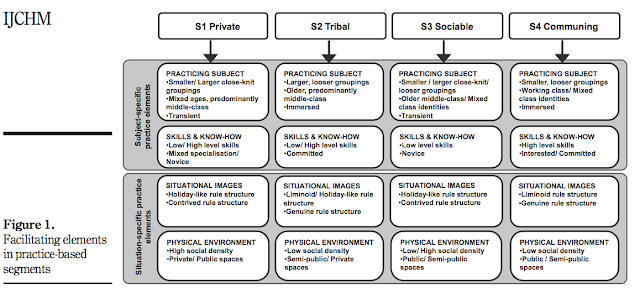

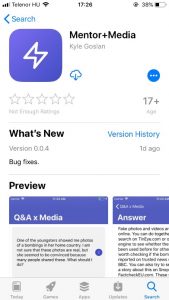


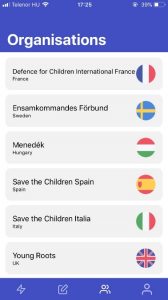
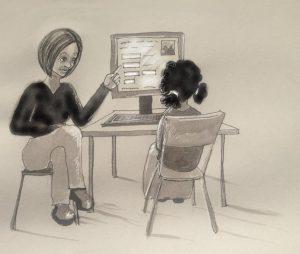

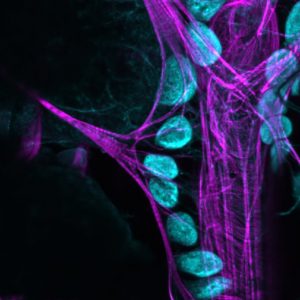



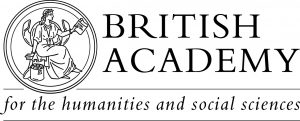


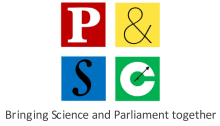

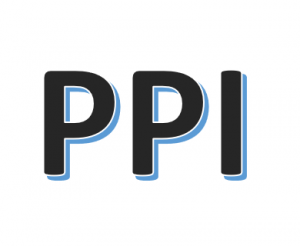
 At Bournemouth University we collaborate with global institutions and organisations through our education, research and practice.
At Bournemouth University we collaborate with global institutions and organisations through our education, research and practice.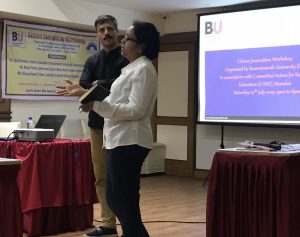
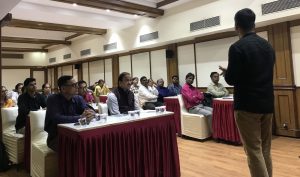











 From Sustainable Research to Sustainable Research Lives: Reflections from the SPROUT Network Event
From Sustainable Research to Sustainable Research Lives: Reflections from the SPROUT Network Event REF Code of Practice consultation is open!
REF Code of Practice consultation is open! BU Leads AI-Driven Work Package in EU Horizon SUSHEAS Project
BU Leads AI-Driven Work Package in EU Horizon SUSHEAS Project ECR Funding Open Call: Research Culture & Community Grant – Apply now
ECR Funding Open Call: Research Culture & Community Grant – Apply now ECR Funding Open Call: Research Culture & Community Grant – Application Deadline Friday 12 December
ECR Funding Open Call: Research Culture & Community Grant – Application Deadline Friday 12 December MSCA Postdoctoral Fellowships 2025 Call
MSCA Postdoctoral Fellowships 2025 Call ERC Advanced Grant 2025 Webinar
ERC Advanced Grant 2025 Webinar Update on UKRO services
Update on UKRO services European research project exploring use of ‘virtual twins’ to better manage metabolic associated fatty liver disease
European research project exploring use of ‘virtual twins’ to better manage metabolic associated fatty liver disease